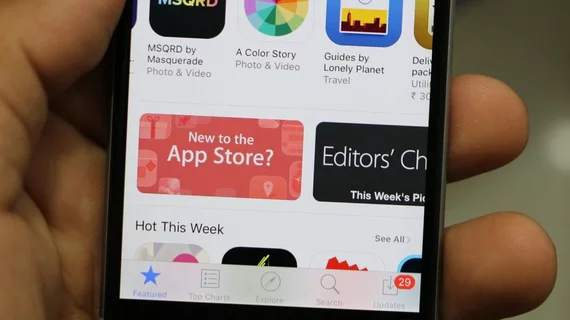AI in radiology: There’ll be an ‘app store’ for that
Radiology is the medical specialty most conducive to clinical AI applications. After all, the pre-AI technique of computer-aided detection has been used in mammography since 1998, for example. So it shouldn’t come as a surprise to find AI “app stores” rising in radiology.
The Harvard Business Review posted a piece looking at the development June 17.
Article co-authors Woojin Kim, MD, and Karen Holzberger, both executives with Nuance—which, it must be noted, is already in the “radiology app store” business—suggest that such AI marketplaces can serve two groups of stakeholders.
For doctors and hospitals, these marketplaces can offer one-stop shopping for an array of AI offerings. For AI developers, they can mean access to a well-defined target market and an end-user feedback channel.
“While AI marketplaces should foster widespread adoption of AI in radiology, they also have the potential to help alleviate radiologist burnout,” not least by improving the speed and quality of radiology reporting, Kim and Holzberger write.
“The recent emergence of AI marketplaces can accelerate the adoption of AI algorithms, helping to manage growing workloads while providing doctors with tools to improve diagnoses, treatments and, ultimately, patient outcomes.”
Read the whole thing:

